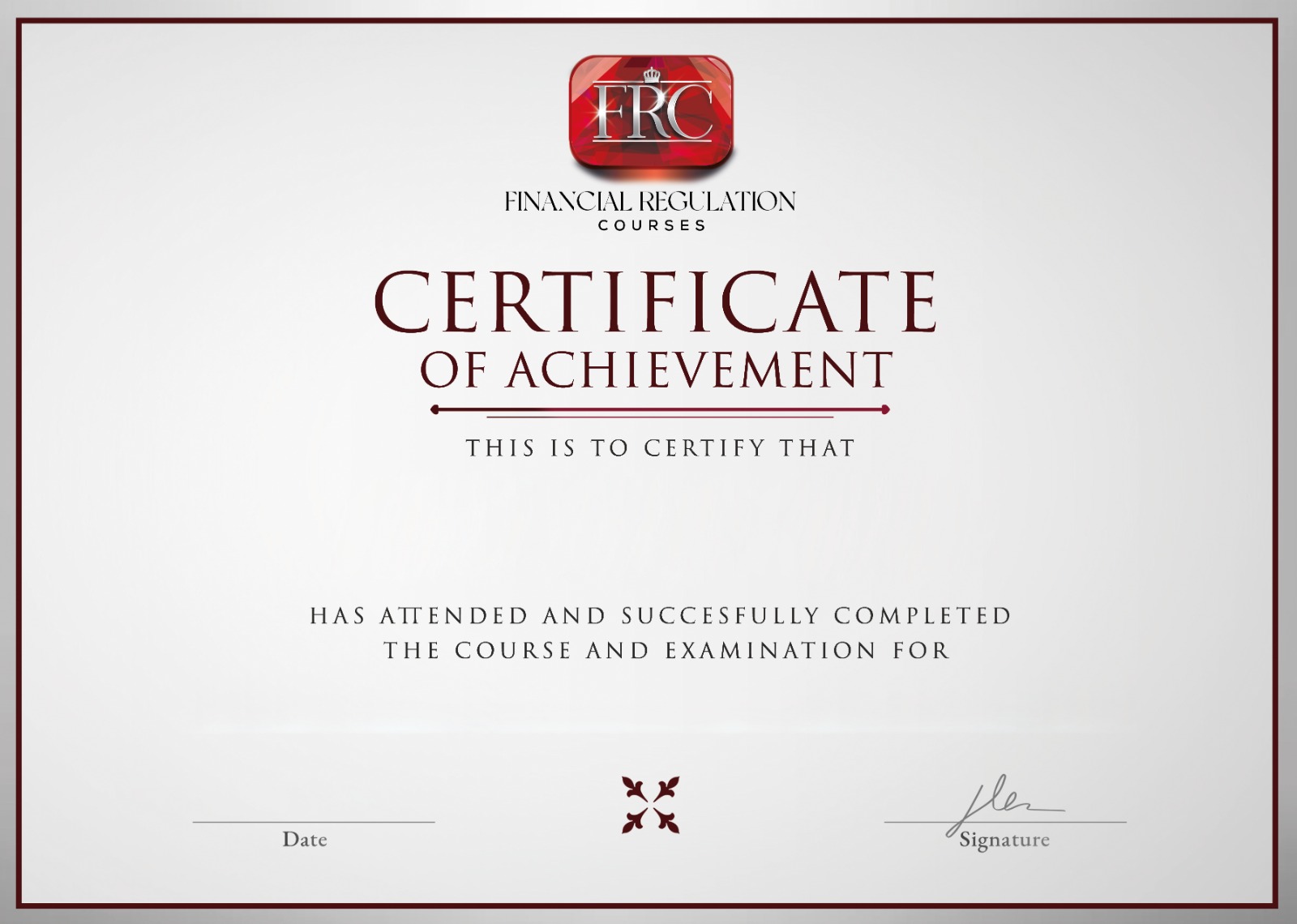Professionalism and Ethics
Financial Regulation Courses (FRC)
Overview
The Professionalism and Ethics course, offered by Financial Regulation Courses (FRC), provides an in-depth exploration of ethical behaviour, professional integrity, and codes of conduct in the financial services sector.
Learners will examine ethical philosophies, principles, and their application to professional practice.
The course also delves into the key elements of professional ethics, including trust, honesty, accountability, and adherence to regulatory standards.
Through case studies and practical scenarios, participants will develop a solid understanding of ethical decision-making and the role of ethics in maintaining professionalism within financial institutions.
Learning Objectives
By the end of this course, learners will:
- Understand core ethical theories and principles and their application to professional practices in financial services.
- Differentiate between ethical, unethical, and unprofessional behaviour in a business environment.
- Learn the importance of professional integrity and how to maintain high standards of conduct in financial operations.
- Explore the relationship between ethical principles, regulatory standards, and professional codes of conduct.
- Understand the impact of ethical decision-making on business success, client trust, and employee retention.
- Apply ethical awareness and assess dilemmas in the context of professional practice.
- Develop strategies for creating and maintaining an ethical culture within financial institutions.
Learning Outcomes
Upon successful completion of the course, learners will:
- Demonstrate a deep understanding of ethical principles and how they apply to the financial services sector.
- Confidently navigate ethical dilemmas and make informed decisions that align with professional standards and codes of conduct.
- Maintain professional integrity in business operations and demonstrate ethical behaviour towards clients, colleagues, and stakeholders.
- Implement ethical practices that contribute to client trust, employee retention, and long-term business success.
- Apply the codes of ethics and conduct to everyday business scenarios and assess the outcomes of ethical vs. unethical behaviour.
- Foster an ethical workplace culture and ensure that employees adhere to ethical standards in all aspects of their work.
- Develop skills in ethical decision-making that can be applied in both individual and team contexts within financial organisations.








